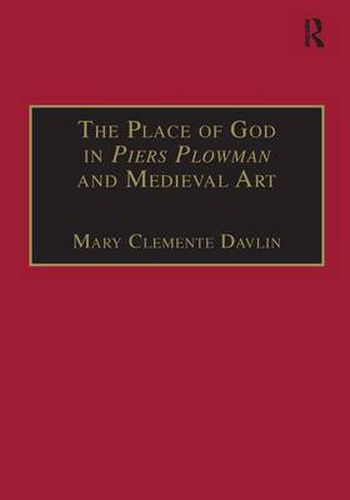Readings Newsletter
Become a Readings Member to make your shopping experience even easier.
Sign in or sign up for free!
You’re not far away from qualifying for FREE standard shipping within Australia
You’ve qualified for FREE standard shipping within Australia
The cart is loading…






Very few poets except the authors of the Hebrew Scriptures and the New Testament have tried to write in any extended way about God. Even Dante confines his vision of Christ and the Trinity to a few passages at the end of Paradiso and most religious lyric poets concentrate more on their own attitudes and reactions to God, their prayer, longing, repentance, suffering or joy, than on the nature of God. Among English poems, three narratives, Piers Plowman , Paradise Lost and Paradise Regained are exceptional in their extensive, explicit poetry about god and their direct concern with the mysteries of Biblical faith. This work looks at Piers Plowman , confronting not only the alterity of culture resulting from a lapse of almost 700 years, but also the more profound alterity of the subject matter. The author explores the poem’s language about the place of God in the context of art, architecture and public religious language, using this context to show both what public meanings certain images (literary or visual) already had in the 14th century, and what could be imagined about the place of God.
$9.00 standard shipping within Australia
FREE standard shipping within Australia for orders over $100.00
Express & International shipping calculated at checkout
Very few poets except the authors of the Hebrew Scriptures and the New Testament have tried to write in any extended way about God. Even Dante confines his vision of Christ and the Trinity to a few passages at the end of Paradiso and most religious lyric poets concentrate more on their own attitudes and reactions to God, their prayer, longing, repentance, suffering or joy, than on the nature of God. Among English poems, three narratives, Piers Plowman , Paradise Lost and Paradise Regained are exceptional in their extensive, explicit poetry about god and their direct concern with the mysteries of Biblical faith. This work looks at Piers Plowman , confronting not only the alterity of culture resulting from a lapse of almost 700 years, but also the more profound alterity of the subject matter. The author explores the poem’s language about the place of God in the context of art, architecture and public religious language, using this context to show both what public meanings certain images (literary or visual) already had in the 14th century, and what could be imagined about the place of God.